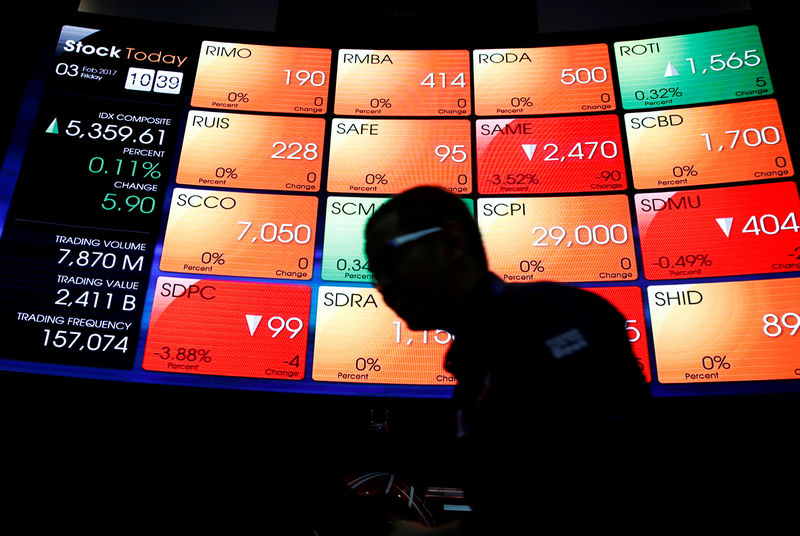Indonesia Stocks Lower at Close of Trade: IDX Composite Index Down 0.30%
The Indonesian stock market experienced a downward trend at the close of trade on Wednesday, with the IDX Composite Index recording a decrease of 0.30%. This decline comes amid uncertainties surrounding the global economic landscape, as well as domestic factors affecting investor sentiment.
One of the key factors contributing to the decline in the Indonesian stock market is the ongoing trade tensions between the United States and China. The protracted trade war between the world’s two largest economies has added a layer of uncertainty to the global markets, which has had a spillover effect on emerging markets like Indonesia.
Additionally, concerns about slowing global economic growth have weighed on investor sentiment, with fears of a potential recession looming on the horizon. The International Monetary Fund (IMF) recently downgraded its global growth forecast for 2019 to 3.3%, citing trade tensions and geopolitical risks as major headwinds to economic expansion.
Domestically, Indonesia has been facing its own set of challenges that have impacted the stock market. Political uncertainties surrounding the recent presidential elections and the subsequent transition of power have added a level of uncertainty for investors. The new government’s policies and economic agenda will be closely watched by market participants for clues on the future direction of the economy.
In terms of sector performance, the Indonesian stock market saw declines across various industries. Banking and financial stocks were among the hardest hit, with major lenders experiencing a pullback in their share prices. This can be attributed to concerns about a potential slowdown in economic growth, which could impact loan demand and credit quality.
On the other hand, certain defensive sectors such as utilities and consumer staples showed more resilience in the face of the market downturn. Investors often flock to these sectors during times of economic uncertainty, as their revenues tend to be more stable and less tied to overall economic conditions.
Looking ahead, market analysts are closely monitoring key economic indicators and geopolitical developments for signs of a potential turnaround in the Indonesian stock market. The upcoming earnings season will also provide valuable insights into the health of Indonesian companies and their ability to weather the current economic challenges.
While short-term market fluctuations are inevitable, long-term investors may view the current dip in stock prices as an opportunity to accumulate quality stocks at a discounted price. Diversification, careful stock selection, and a focus on fundamental analysis remain essential strategies for navigating the volatile market conditions.
In conclusion, the recent decline in the Indonesian stock market reflects a combination of global economic uncertainties and domestic factors influencing investor sentiment. By staying informed and adopting a prudent investment approach, market participants can better position themselves to navigate the current market landscape and seize potential opportunities in the future.



